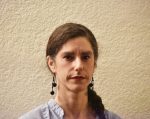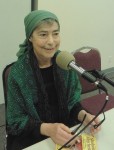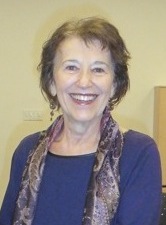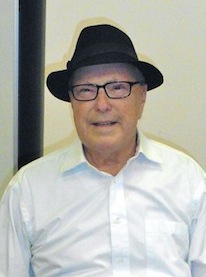Barring disaster, this season’s apple harvest would be bountiful. (photo from maxpixel.net)
“I don’t want to do my job any more.” That loud thought just popped into Rabbi Yohon Abrahms’ head.
It was dawn, and the birds were singing. He was lying in bed alone, staring up at the whitewashed wooden ceiling of his small house. Alone.
Summer in Chelm had been hot, with enough rain to produce a bumper crop of wheat, rye, corn, squash, barley and buckwheat. Hard work. Lots of sweat. In a small village like Chelm, when it was time for ingathering, all hands, even the rabbi, joined in the work. From daybreak to dark for nearly a month, the fields had been full of neighbours working and laughing and complaining.
The whole world thought that everyone in Chelm was always happy but, of course, there was complaining. As Rabbi Kibbitz, the wise old man, often said, “Kvetching is one of the greatest pleasures in life! It’s free and opportunities are plentiful. Anyone can kvetch! And you should!”
The harvest was hard. Back-bending, blister-raising, mind-numbingly repetitive tasks. Reach, cut, lift, wrap, tie, and a small sheaf of buckwheat stood in the field, drying under the sun. Bend, grasp, twist, pick, turn, place the cucumber in a basket. Curse the sharp thorn that poked through a hole in the worn leather glove. And repeat.
It had been bliss. For weeks on end, Rabbi Abrahms had lived in his community, outside his house, surrounded by fellows, outside his mind. All summer, he had not had a moment’s peace to think about his own problems. Instead, he’d rushed from field to field, with the occasional visit with Reb Schlum, the butcher, to perform his job as mashgiach, overseeing the ritual slaughter of chickens and cows. He barely had time to eat and, when he fell asleep at night, it was an exhausted and dreamless slumber that left him feeling eager and refreshed in the morning.
Yesterday, though, the last of the crops had been harvested. The fresh vegetables were on their way to market or into barrels for pickling. The seeds in the field weren’t dry enough to begin threshing.
“Enjoy your rest,” said Reb Cantor, the merchant, over his shoulder as he drove his cart toward Smyrna. “Rosh Hashanah is coming soon and, this year especially, Rabbi Kibbitz is going to need your help.”
The great Rabbi Kibbitz was old. He had always been old. When Rabbi Abrahms first moved to Chelm decades ago, Rabbi Kibbitz had seemed ancient. Now he was practically prehistoric, eating nothing but the healthy chicken soup made by his beloved wife, Mrs. Chaipul (she kept her name, which is another story). Rabbi Kibbitz was beginning to fail. Everyone knew it, but nobody would say it. Soon, beloved Rabbi Kibbitz was going to die.
“Chak, chak, chak.” A red-spotted bluethroat, pecked at a piece of straw outside Rabbi Abrams window. “Chak, chak.”
Rabbi Abrahms did not want to lead the Rosh Hashanah and Yom Kippur services by himself. For years, he had assisted, ready to take over whenever the senior rabbi got tired or needed a break. But Rabbi Kibbitz had been an indomitable bear of a man, davening his prayers from side to side in his peculiar fashion long after younger men grew weak and sat down for a rest.
Rabbi Abrahms did not want to stand on the bimah alone. Truth be told, he did not want to stand on the bimah at all. For years, he’d been picking at that scab, a sore spot in his thoughts, that perhaps being a rabbi was not for him.
It was nonsense, of course. He had studied hard to become a rabbi. He had moved to Chelm to accept the position. He had worked hard as a maschgiach and even harder to teach the stubborn children in the village’s small yeshivah. Being a rabbi had consumed his life. Of course, he was a rabbi.
He was 55 years old, and still the junior rabbi. What else could he be?
He was not married, something that the yentas in Chelm tutted him about regularly. As a younger man, he had loved and lost and, until it was necessary, he would not walk that road again. So he had no children to occupy his mind and time.
He had written some small books: a thin catalogue called The Wildlife of Chelm and the Nearby Black Forest, an English and Hebrew Haggadah that had been published by someone in America named Maxwell House, even a slender humorous novel in the style of the Russians. Writing, though, was not a job that would pay for eggs and tea and firewood.
“Chak, chak,” the bluethroat chided.
Foolish thoughts.
But, even after Rabbi Kibbitz left the world behind (may that day be distant), Rabbi Abrahms knew that he would always be the junior rabbi of Chelm.
It wasn’t the relative position or lack of prestige that bothered him. Rabbi Abrahms hated listening to other people’s troubles. He didn’t like cheering people up. He was bored with morning prayers, afternoon prayers, evening prayers and Sabbath prayers, let alone the special prayers for holidays and festivals. He dreaded officiating over wedding and bris ceremonies. Visiting the sick made him feel sick. And the idea of saying the Mourner’s Kaddish at Rabbi Kibbitz’s funeral left him weak and heartbroken.
Even being called Rabbi Abrahms chafed like a burr.
“My name is Yohon,” he whispered at the wall. “Can’t you see?”
Perhaps if he had mentioned his affliction to Rabbi Kibbitz a few years earlier, they could have worked something out. Put an advertisement in the Jewish newspaper in Pinsk for a new rabbi for Chelm. Or together found passages in the Torah or Mishnah that would have eased his mind.
But the great man was dying. Rabbi Abrahms shouldn’t trouble him.
Maybe he wouldn’t die this year. Maybe there would be time.
Barring disaster, this season’s apple harvest would be bountiful.
Sukkot was early, right at harvest time, and Rabbi Abrahms would take to the fields, climb the thin triangular ladder with a basket looped over his shoulder. Reach. Pick. Drop. Until the basket was full.
Then move the ladder to another tree, and begin again.
Every so often, he would stop, near the top of a tree heavy with fruit. He would lean against the trunk, take a bite of a crisp just-picked apple, and look up through the leaves at the wide, blue sky.
Mark Binder is a writer and storyteller, who lives in Providence, R.I. He is the author of more than 20 books and audio recordings, including The Brothers Schlemiel, a novel of Chelm. Follow him on Instagram, @MarkBinderBooks, or visit his website markbinder.com.







